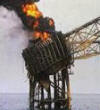Susan Conlan: "Environmental questions cross all social and cultural lines."

Attending environmental film festivals can reveal a lot about what is taking place on society’s “underbelly,” so we decided to talk to Susan Conlan, the Teen Services director at Princeton (New Jersey) Public Library about an exciting event last January which brought together films from different parts of the country.
“Must have been something of an adventure organizing the festival!”
“Yes, it was. This is the second year we have done the festival, although we there have been similar activities at the new library building, whose ample facilities greatly enhance our efforts.
In fact, the library is a focal point for cultural activity in this small community—tucked in the wooded landscape of New Jersey, openly and almost proudly multi-cultural in spite of having been the sight of bloody battles for the independence of the colonies from British rule.
“The library was previously located in an historic building which unfortunately didn’t have a community room like the one we have here in the new library. The building was specifically designed with a multi-purpose community room on the first floor. So once we got into this new space we began showing a wide range of films, documentaries and so forth. We’ve done some retrospectives with specific themes in mind, one on Jimmy Steward, for example, but a festival is different.
“So that’s how the idea of the environmental festival was born.”
“Three years ago I began showing a series of documentaries. I would usually research interesting films, and then contact people so they could come and talk about specific topics. In the process I discovered a whole lot of people here in Princeton interested in films, although sometimes I felt there was an overlapping in the different subject areas in the series we organized.” “Were most of the films shown in the environmental festival done by professionals or…”
“Oh, there was a mix, but let me explain that my job is working specifically with teenagers, designing and implementing programs and services. One of the kids was very interested in the films and so one day he said: ‘why don’t we do an environmental festival?’ The idea came from a project he was doing at his High School. So I said: ‘O.K. Let’s see what’s out there. We went to the web sites and found a lot of material. The first year it went more or less well, because people were not on to the subject yet. For last January’s festival we picked up films that had participated in other festivals. I also got about six films through the link on our web site, of which we showed three. The result was a wide range in terms of topics and also in professional experience.”
“The festival was a great way to get to know what’s happening in the country.”
“What I wanted to avoid was putting experts out there to tell people what the situation was all about. We didn’t have scientists or technicians, although there were people who had thoroughly researched their subjects. That makes the people who attend feel more a part of the event, more disposed to make a comment or ask a question.”
“This of course is a university community—hosting the University of Princeton, whose library has 6.5 million books—so I don’t suppose it is representative of the U.S. in general. But would you say there is a growing interest in contamination, environment, the heating up of the planet?”
“I think it goes beyond the specific subjects people are interested in. It isn’t something you can choose to be involved with: we are all involved whether we like it or not. The environmental question crosses every social and cultural line. It affects everyone. One the one hand, you have the government, the corporations, and on the other the people.
“Business is no doubt more interested in profit than environment.”
“Yes, but I think both business and government will respond if the people tell them what they want. If the public does not demand change, nothing is likely to happen. Business is basically interested in making money, now, not in the future. Perhaps from the monetary point of view they see no reason to change their way of doing things. Their responsibility is profit. But people can’t act effectively to demand changes unless they are educated concerning the issues at stake. That’s the interesting thing about this festival, it allowed people to open their minds a bit. So you show the films and then open things up to opinions and that allows people to see things which perhaps they had not realized before.”
“Little moments of enlightenment…”
“I think people saw in each situation lot’s of connection with things happening in their own communities. It served as a sort of link up to bring people together.”
You can contact Susan at:Princeton Public Library
65 Witherspoon Street
Tel (609) 924 9529
0 comentarios